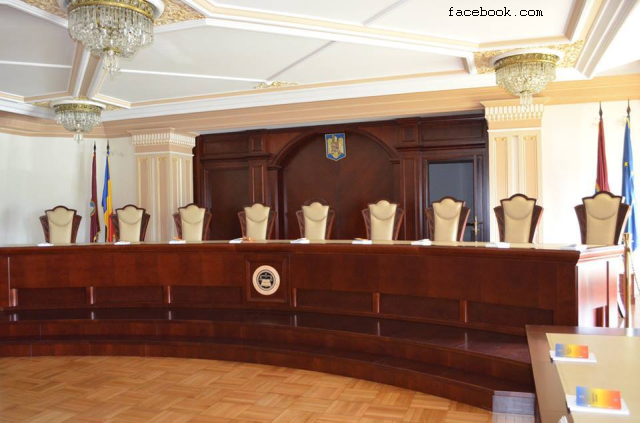Constitutional Court explains Kovesi dismissal ruling
The Constitutional Court settled the dispute between the Government and President

Ştefan Stoica, 08.06.2018, 13:06
The conflict between the Government and President Klaus Iohannis over the latters refusal to dismiss Laura Codruta Kovesi, the head of the National Anticorruption Directorate, ended with the Constitutional Courts decision calling on Iohannis to dismiss Kovesi.
The Constitutional Court claims the Presidents role in this process is strictly to check the legality of the procedure. The Court judges ruled that the Justice Ministers remit is not solely administrative, but also encompasses authority over prosecutors. As such, the Presidents refusal to remove Kovesi from office has prevented the line minister Tudorel Toader from exercising his legal authority, which created constitutional conflict, the Court judges explain.
Still, the Courts decision was not unanimous. There are some judges who found that the President did not exceed his constitutional prerogatives by rejecting Toaders proposal to dismiss Kovesi. The Court warns that, irrespective of who generated the constitutional conflict, the authorities have the obligation to abide by its rulings, which means the President has to sign the decree to sack Kovesi. Prior to the publication of the reasons, Klaus Iohannis gave assurances that he would observe the rule of law and make sure that his decision would not dent the independence of the judiciary. Justice Minister Tudorel Toader believes Iohannis has no other choice but to dismiss Kovesi:
Tudorel Toader: “I dont think the president, irrespective of who he is, can bypass the Constitution. There is no fine or prison sentence for that, but we do have constitutional ways to sanction him if that happens.
The leader of the Liberal Party in opposition, Ludovic Orban, criticises not just the Courts ruling, but also its reasons:
Ludovic Orban: “The Constitutional Courts ruling virtually violates the principle of the independence of the judiciary and of prosecutors. Prosecutors are being turned into agents of the executive power, servants to the Justice Minister, who is a politically appointed official and who can exert a biased control over the activity of his ministry, courts of law and prosecutors.
The members of the Social-Democratic Party and the Alliance of Liberals and Democrats claim, without any substantiating evidence, that Laura Codruta Kovesi is part of an illegitimate structure which decides who should be removed from public office, by fabricating criminal charges. On the other hand, the National Anticorruption Directorate is constantly praised by the European Commission in its reports on Romanias progress in reforming the justice system under the Cooperation and Verification Mechanism. In turn, magistrates believe the real stake is not Kovesis fate as head of the Directorate, but the fate of the whole justice system being turned into a tool for the current political power.
(translated by: Vlad Palcu)






























